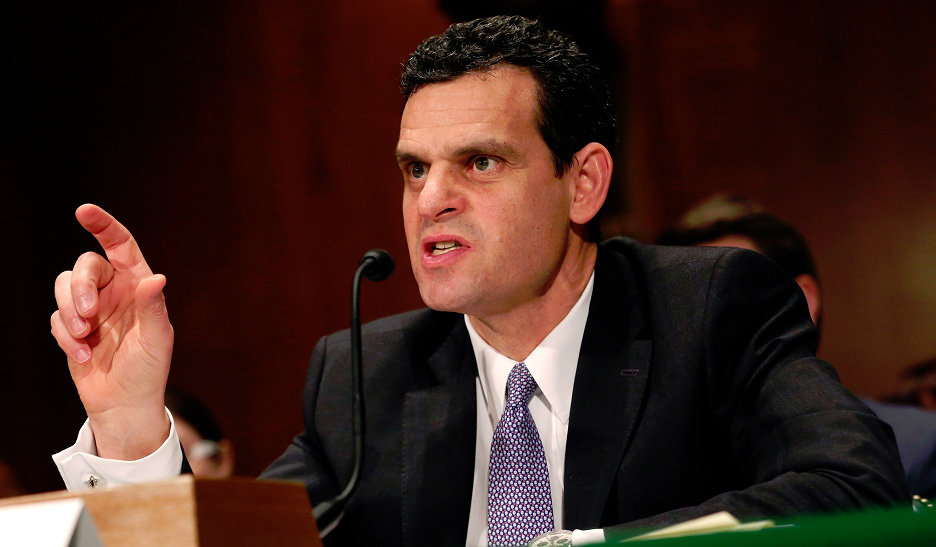Ex-deputy CIA director: Trump process is 'very disconcerting' on Iran deal

Tensions between the United States and Iran have been red hot in recent weeks -- and they might be about to get even hotter.
Amid warning shots fired by U.S. ships against Iranian ones, as well as very close calls when Iranian drones have buzzed the U.S. military, President Trump will be called upon to certify that Iran is in compliance with the nuclear deal.
His administration has declared Iran in compliance, as required by law, twice during his tenure so far. But Trump has said he expects the U.S. to declare Iran non-compliant when the next review is due in September.
The president has put together a team of aides to pull together the intelligence so he can do just that, according to a report in Foreign Policy.
David Cohen, former deputy director of the CIA, said it was "very disconcerting" that it appears Trump may have made a conclusion about Iran before finding the intelligence to back it up.
"It stands the intelligence process on its head," he told CNN's Fareed Zakaria. "Our intelligence analysts, who have access to all of our clandestine collection, access to what our allies around the world are collecting and access to IAEA reports and other open source information are in the best position to make that assessment of whether Iran is complying with the nuclear deal."
"If our intelligence is degraded because it is politicized in the way that it looks like the president wants to do here, that undermines the utility of that intelligence all across the board," said Cohen. "If it's politicized, that credibility and reliability is undermined."
Earlier this week, presumably responding to these news reports, Iran's President Hassan Rouhani said his nation's nuclear program could be re-started within hours if new U.S. sanctions are imposed.
Cohen said the international community likely would not unite with sanctions against Iran even if the United States finds Iran not in compliance.
"As a practical matter, you're not going to have the rest of the international community, you're not going to have our allies in Europe, you're certainly not going to have the Russians and the Chinese coming along with us to re-impose real pressure on the Iranians. So you'll have this fissure between the United States and essentially the rest of the world in trying to reinstate pressure on Iran."
"On the other side of the coin, the Iranians, with the U.S. having pulled out of the deal, will feel that they are absolved from adhering to their commitments under the nuclear deal. So maybe they will begin to spin more centrifuges," he said.
